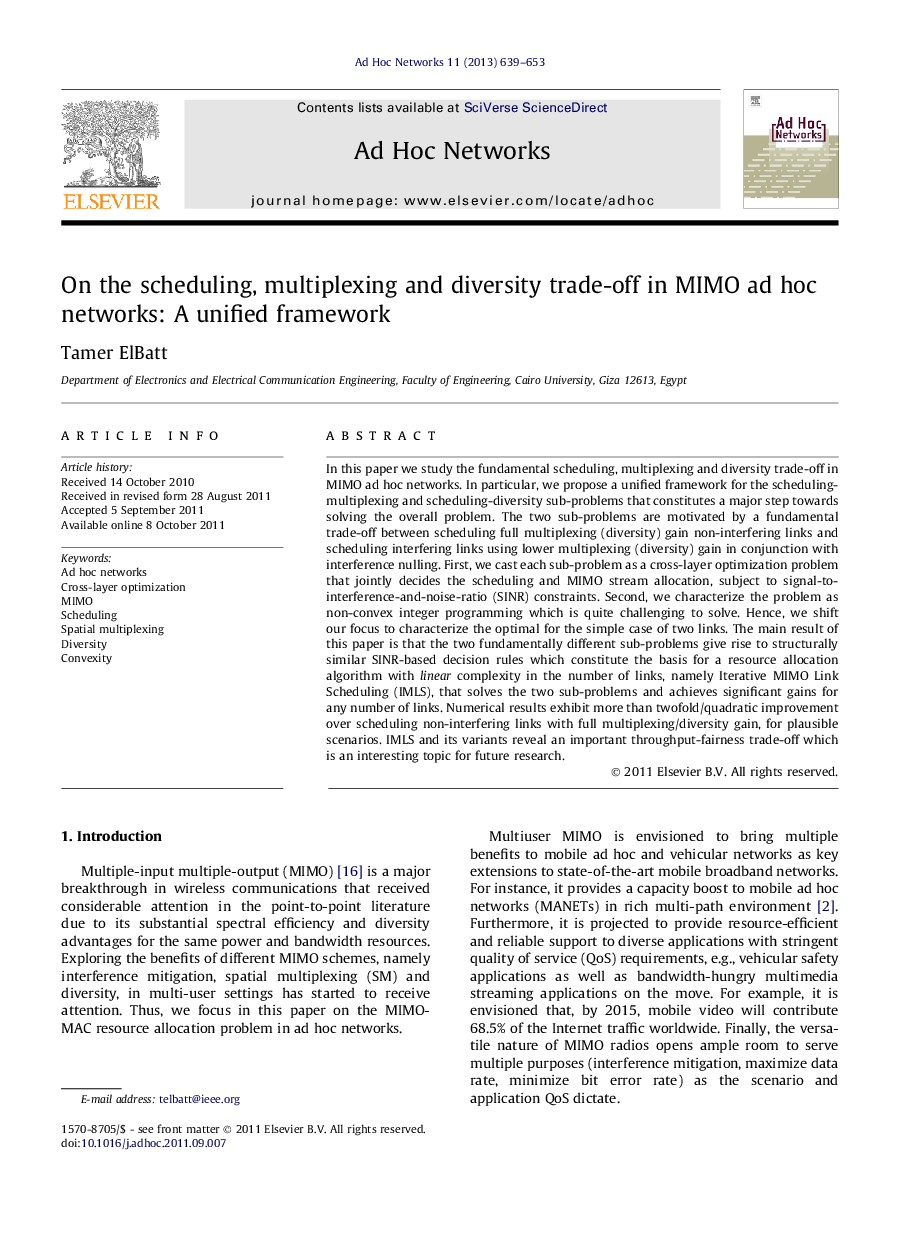| Article ID | Journal | Published Year | Pages | File Type |
|---|---|---|---|---|
| 448179 | Ad Hoc Networks | 2013 | 15 Pages |
In this paper we study the fundamental scheduling, multiplexing and diversity trade-off in MIMO ad hoc networks. In particular, we propose a unified framework for the scheduling-multiplexing and scheduling-diversity sub-problems that constitutes a major step towards solving the overall problem. The two sub-problems are motivated by a fundamental trade-off between scheduling full multiplexing (diversity) gain non-interfering links and scheduling interfering links using lower multiplexing (diversity) gain in conjunction with interference nulling. First, we cast each sub-problem as a cross-layer optimization problem that jointly decides the scheduling and MIMO stream allocation, subject to signal-to-interference-and-noise-ratio (SINR) constraints. Second, we characterize the problem as non-convex integer programming which is quite challenging to solve. Hence, we shift our focus to characterize the optimal for the simple case of two links. The main result of this paper is that the two fundamentally different sub-problems give rise to structurally similar SINR-based decision rules which constitute the basis for a resource allocation algorithm with linear complexity in the number of links, namely Iterative MIMO Link Scheduling (IMLS), that solves the two sub-problems and achieves significant gains for any number of links. Numerical results exhibit more than twofold/quadratic improvement over scheduling non-interfering links with full multiplexing/diversity gain, for plausible scenarios. IMLS and its variants reveal an important throughput-fairness trade-off which is an interesting topic for future research.
